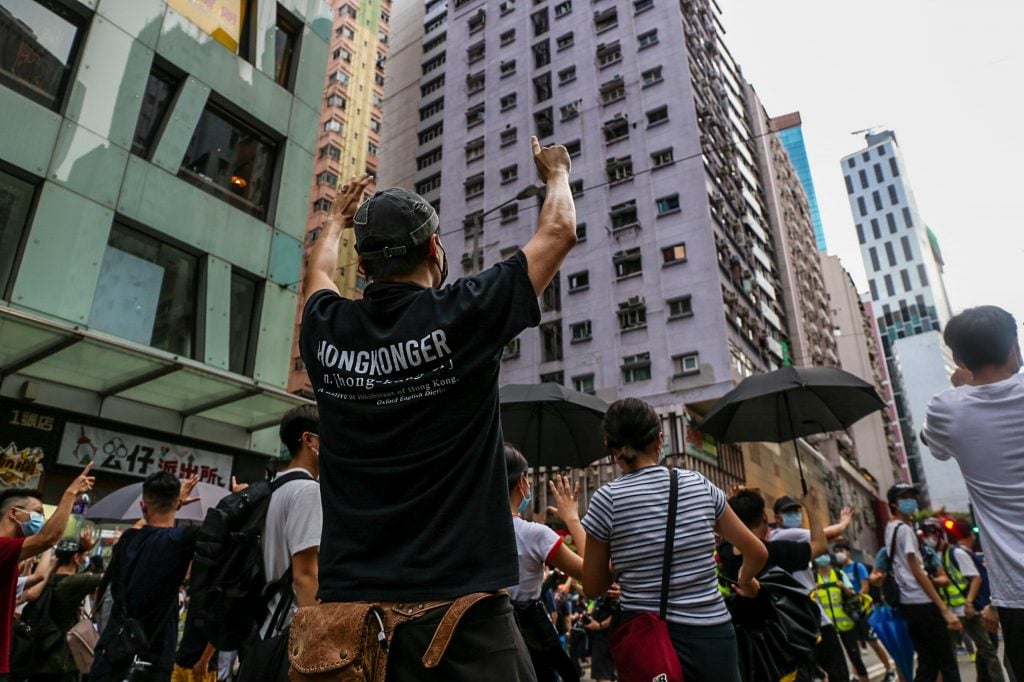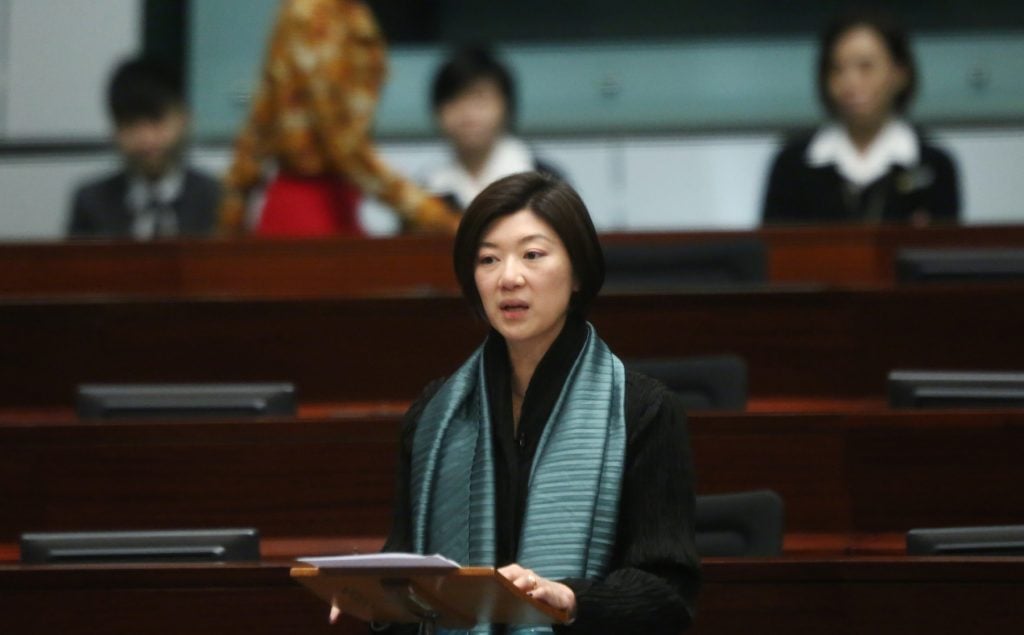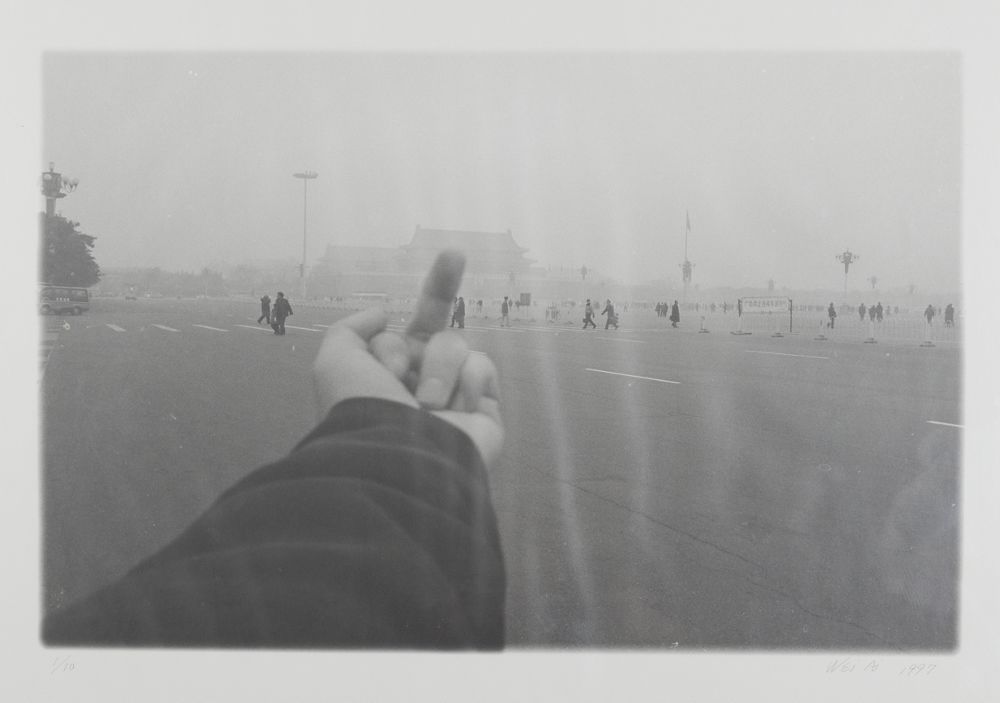Art World
An Artist Who Defended Ai Weiwei Has Resigned From Hong Kong’s Arts Council, Citing ‘Personal Safety’
Chris Chan Kam-shing's resignation came alongside several others, as tensions over a new national security law continue to mount.

Chris Chan Kam-shing's resignation came alongside several others, as tensions over a new national security law continue to mount.

Caroline Goldstein

Multiple members of Hong Kong’s Arts Development Council have resigned this week. At least one, artist Chris Chan Kam-shing, cited “personal safety” as his reason in an interview with the South China Morning Post, though he declined to elaborate. The departures come after a series of media attacks.
The three officials who resigned—the others are songwriter Adrian Chow Pok-yin and director Indy Lee Chun-leung—were among a group of reformers originally elected in 2016 in a landslide, beating out more pro-establishment incumbents.
Government-appointed representative Vigo Yau Ah-kwai had resigned in May, according to the South China Morning Post’s report. As a result, the 27-member Council now has a gaping hole, with 15 percent of its seats left unfilled. In a statement, the council said that the resignations were over “personal reasons” and stressed that they “do not have any impact on [its] operation.”
In March, Chris Chan drew widespread notice after he challenged pro-Beijing politician Eunice Yung Hoi-yan’s contention that Ai Weiwei’s works in the M+ Museum collection—in particular his photograph Study of Perspective – Tian’anmen (1997), which features the artist giving the middle finger at the site of the 1989 student protest—might violate the new security law.

New People’s Party lawmaker Eunice Yung Hoi-yan. Photo by SCMP / Jonathan Wong, via Getty Images.
Chan had defended both the museum and Ai’s art, saying that “M+ can serve as an educational platform for those who don’t understand culture, like Yung.”
According to a source who spoke to the South China Morning Post, Chan’s resignation was related to concern over a lengthy profile of him in China’s Ta Kung Pao news outlet in April, “accusing him of being a ‘yellow ribbon’ spy in the council and mentioning the area he lived in.” (The yellow ribbon is a symbol of the demand for more democracy in Hong Kong.)
Chan’s girlfriend has also reshared content on social media that is pro-Hong Kong independence. The source said that their names “were looped in the newspaper again in a report about brother Ming,” referring to recent coverage of the arrest of pop singer Anthony Wong Yiu-ming, who was charged for encouraging voters to support a pro-democracy candidate.

Ai Weiwei, Study of Perspective: Tian’anmen (1997). M+ Sigg Collection, Hong Kong. By donation, © Ai Weiwei.
The Chinese-owned Ta Kung Pao and Wen Wei Po outlets accused the council of distributing grants of up to HK$15 million ($19 million) to pro-democracy groups that oppose the national security law.
Stressing that the council’s work had been professional, Indy Lee told the South China Morning Post that pro-Beijing media had “smeared” it. “I hope to calm the situation down,” he told the paper, speaking of his resignation.
Since the Beijing-drafted national security law went into effect on June 30, 2020, Hong Kong artists are among those who have publicly contemplated leaving the country as freedom of expression is curtailed. Meanwhile, last week online media source Initium Media announced it would move its headquarters from Hong Kong to Singapore as a direct result of the security law.
Pro-democracy paper Apple Daily closed in June after the government froze its assets. Its founder, millionaire Jimmy Lai, was sentenced to 14 months in prison for participation in the 2019 protests.
Christie’s, however, announced at the end of July that it was dramatically expanding its business in Hong Kong and tripling the numbers of art sales there.